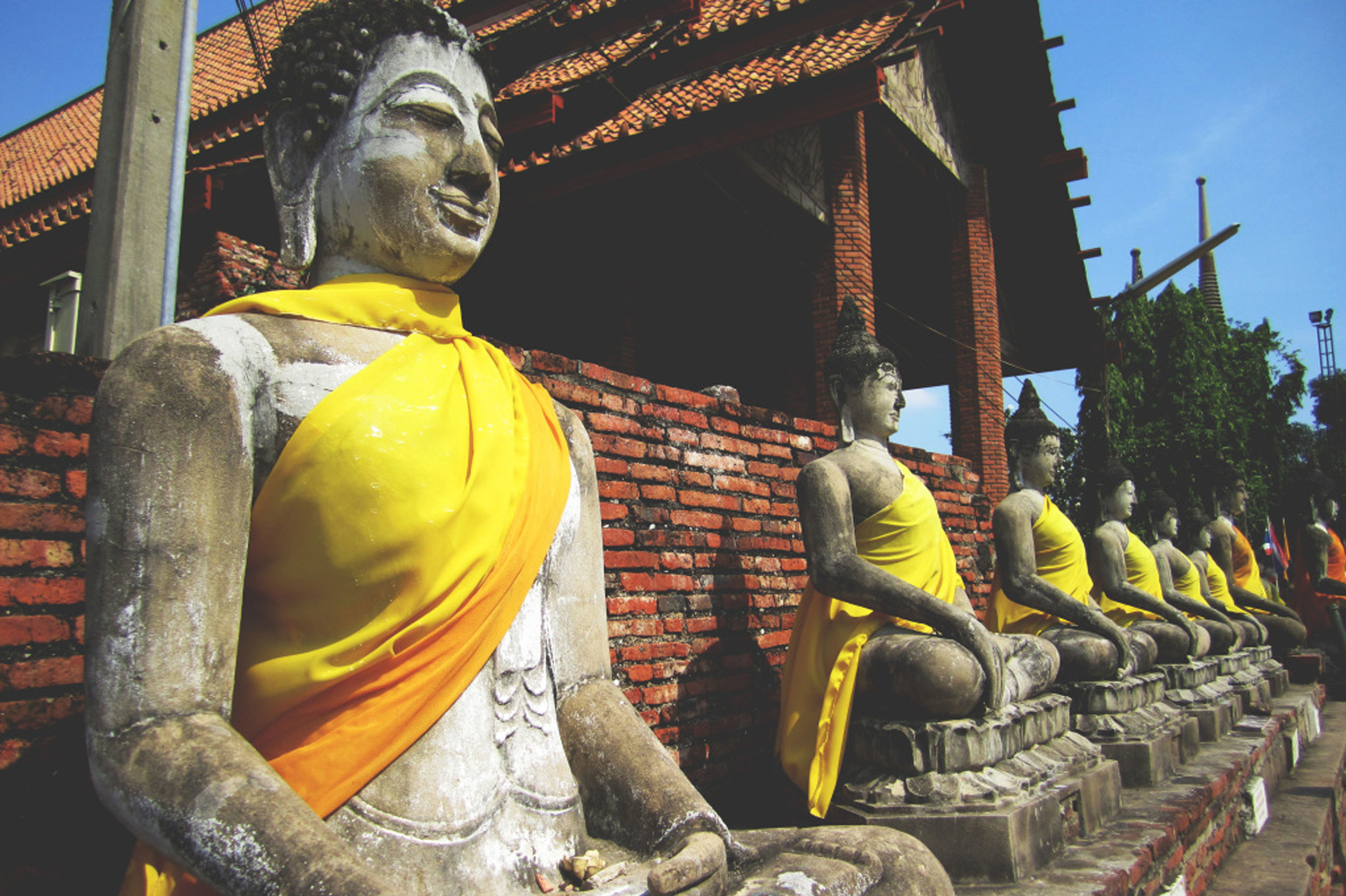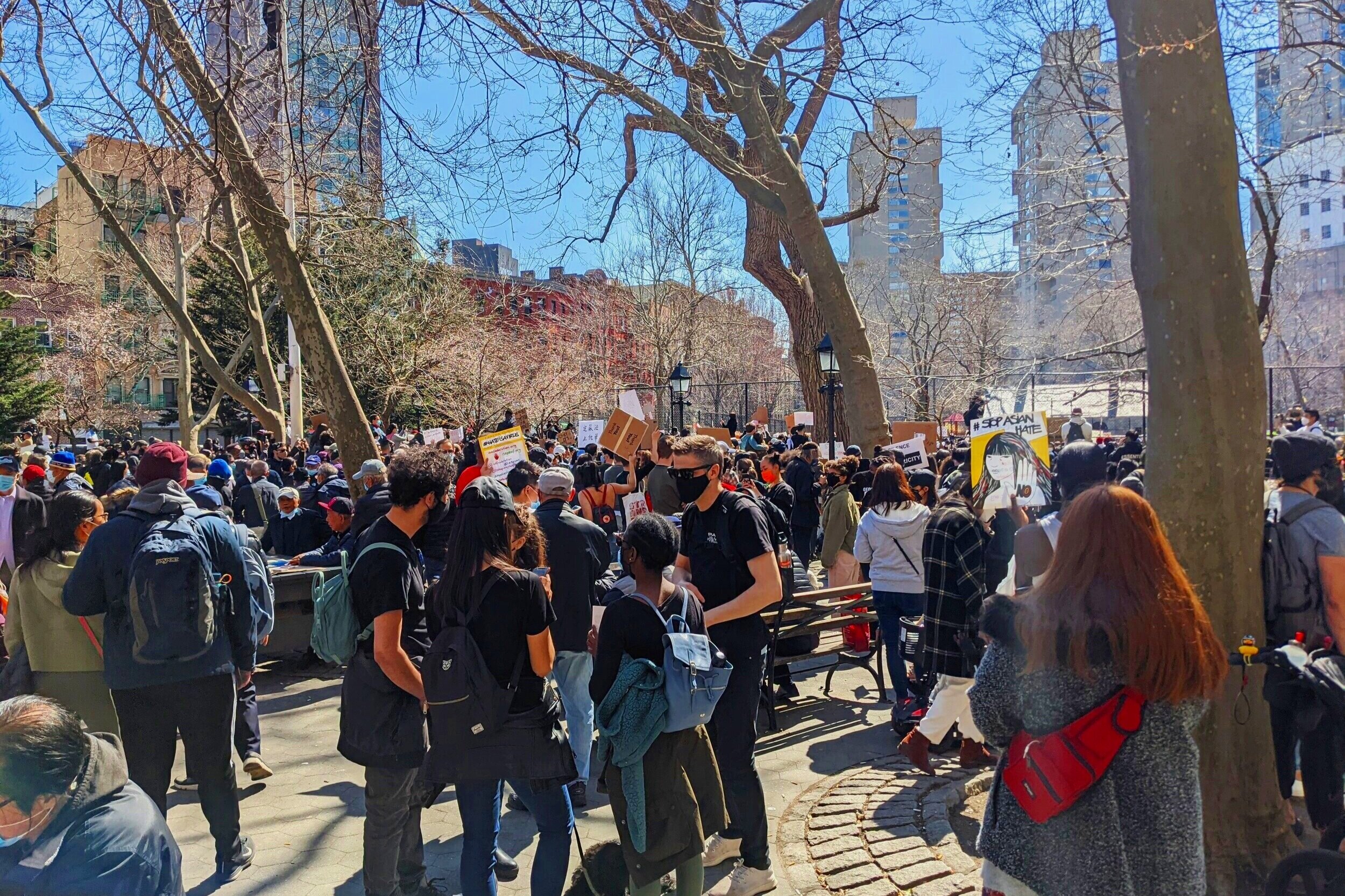finding calm in chaos
So I’m done with finals (I can only imagine the collective outrage from everyone still studying, but I was you last week), and I’m officially on break! If any of you San Diegans are on the semester system and are back home, text me so we can hang out :). And to everyone else, good luck on your finals! It’s stressful, but hey, we’ve done this every quarter since freshman year and we’re still (semi) sane. So keep powering on. You got this.
Maybe it’s the stress of finals week (ha), but I’ve been thinking a lot about meditation lately. Meditation has always been attractive to me. I’ve always liked the idea of focusing your mind to a point of introspection and reflection, mostly because it’s something I’ve always had difficulty with. I was officially diagnosed with mild ADD/OCD when I was in 10th grade (measured on a spectrum ranging from mild to severe), and since then I’ve realized all of the ways it manifests itself in my life. I often hear people say things like “I can’t listen to this song anymore, I’m so ADD” or see them rearrange things on their desk because they’re supposedly OCD. Inexplicably, ADD and OCD are the most fashionable mental disorders. I have never met anyone claiming to be a paranoid schizophrenic, for example. But in reality, it’s not as fun as it sounds.
In particular, ADD/OCD is a tricky combination because they intersect with one another. Symptoms can overlap, and exacerbating one condition can cause worsening of the other. Studying is almost impossible, because you’re laser-focused…but on all the wrong things. I can’t even begin to count the number of times I’ve spent an unreasonable amount of time perfecting something trivial, or forgetting to eat or sleep because I had to finish whatever I was doing. And the thing is, it’s a disorder. You know that you shouldn’t be bothered by these things, but you are. It’s that little voice in your head that tells you that you need to do something to alleviate the source of your stress, and you don’t feel better until you’ve satisfied whatever it is that constitutes your personal fix. I’m lucky that these things for the most part don’t inhibit me, and that I still have a firm grasp of reality (as far as I know). But they also can’t be permanently fixed; you simply have to learn to adjust to them.
My mind on a daily basis can only described as “cluttered,” with more thoughts than I have the mental capacity to deal with, so my mom suggested meditation a while ago to help clear it. I’m easily distracted—I have at least 30 tabs open on my laptop at any given moment, I have to walk around while I’m brushing my teeth or I get bored, and sometimes I’m overwhelmed by simple tasks because of the sheer volume of thoughts racing through my head (I started writing this post at 3 am on my phone because I couldn’t sleep until I’d written it down). I tend to overthink and overanalyze, which makes sitting calmly a challenge.
But my friend Donald recently told me about something called “mindful meditation,” a method that focuses on “watching” your thoughts, rather than allowing yourself to be consumed by them. “You don’t get involved in them, and you don’t reprimand yourself for having them,” he told me, and he gave me a video called “How To Meditate – The No Bullsh*t Guide to Mediation” to watch (admittedly, it was quite long and took me two tries). The video characterizes a state of mindfulness as “an awareness—the ability to be an observer of yourself, your mood, your emotions, and other people; to look objectively at situations without being reactive to [them].” It was an interesting way of thinking, because I’d always pictured meditation to be a state of complete tranquility, a blank state, with no distractions and total peace; an otherworldly experience in which you separate yourself from the reality of everyday life. But in the modern age, living a mindful life is more practical than joining a monastery (not to mention it’s been scientifically proven to have psychological benefits). I’ve read widely on spirituality and different interpretations of Buddhism, and have actually tried meditation before (a 30-day meditation challenge that I stupidly decided to pursue in the midst of finals week freshman year, damn you Oprah and your persuasiveness), but I had never considered that it would be something I’d have to actively work at over time.
It’s fascinatingly paradoxical because it’s both conscious and unconscious at the same time. I think spirituality is a very necessary part of life—I think you need at least some variation of it in your life it to really be happy. “Happiness” in life is, in my opinion, ultimately contingent upon your ability to be happy with yourself and the person you are. I once saw a post from Humans of New York that really spoke to me personally (to the point that I can recall it off the top of my head), because one of my greatest fears is achieving everything I want in life and still being unhappy. I think to live a fulfilled life, you can’t rely on solely on external sources of happiness. While most things in life are beyond your control, your attitude isn’t, so it’s important to cultivate a positive mindset.
I tried meditation at the beginning of this month, using the advice from the video to guide me. And amazingly, it worked. Despite the construction in my backyard, the noise of cars and airplanes from outside, and my leg falling asleep, I was able to focus for a full 20 minutes. It was actually one of the more difficult things I’ve done. We live life with the intention of filling our minds with as much knowledge as possible, but we rarely consider the value of examining our inner thoughts. I think it’s only when we feel unsatisfied with other aspects of our lives that we seek wisdom from meditation. Donald advised me to be removed from my thoughts, to simply observe them as they went by. And I found that by focusing on a quiet place in my mind, I could do it for (very) short bursts of time. Sometimes I would get caught up in my thoughts—because I often think in the context of writing, I see my thoughts as a mess of words. But then I would imagine them breaking apart into jumbles of letters like alphabet soup, the sentences crumbling and scattering themselves across the expanse of my mind and falling like snowflakes. And if only for a couple of seconds, my mind was completely and blissfully blank.
Meditation used to be something unattainable, something I assumed was reserved for Buddhist monks and the spiritually enlightened. But after just half a month of struggling through meditation sessions every night, I think I’m beginning to see the benefits of merely attempting to sit quietly and aspiring to a still mind. And if I can do it, anyone else can.
If you meditate or have a focus ritual, tell me how in the comments! I’m still learning and I’d appreciate the advice.






























